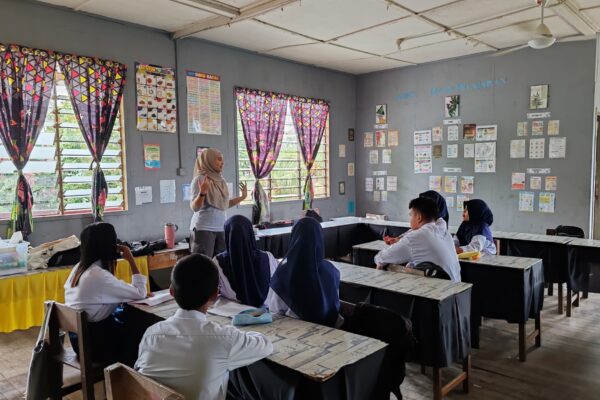3-minute read
In Soubré, Ivory Coast, Earthworm Foundation is working with rural communities, particularly the wives of cocoa and rubber farmers living near forests reserves in Niégré and Monts Kourabahi.
Their contribution is at the heart of work to promote healthy forests and prosperous communities. The aim is to empower them and their spouses to take ownership of forest conservation by developing income-generating activities that do not harm forests.
The town of Soubré is capital of Nawa region, where about 40 percent of Ivory Coast's cocoa is grown. The country itself is the leading producer of cocoa worldwide, along with Ghana. The Nawa region is also home to protected areas that have been degraded by agriculture – such as Niégré and Monts Kourabahi – by as much as 80 percent.
Agriculture in the region depends heavily on small farmers, who struggle with low productivity due to their farming practices. Since most farmers are without a formal land title, they struggle with access to credit. Women here face further challenges with equity and representation.
With partners including GODIVA Chocolatier and state forestry agency SODEFOR, finding a balance between farmers’ livelihoods and reducing pressure on forests is the focus here. In addition to inviting communities to practice agroforestry, Earthworm’s field teams support the establishment of Village Savings and Credit Associations (VSCAs).
“GODIVA is proud to support initiatives that regenerate healthy forests and create prosperous communities that center the voices of women,” said Tara McTeague, Head of GODIVA Global Corporate Communications. “As we continue our partnership with Earthworm Foundation, we are enthusiastic that initiatives like these VSCAs will continue to diversify farmer incomes and promote the ongoing regeneration of the regional landscape.”
VSCAs are self-help groups set up and run by women and men, explained Eléonore N'Gbesso, Programme Manager at Earthworm Foundation. Members meet to learn how to save and manage funds, think about income-generating activities, borrow to develop projects and repay these loans in the short term (three months).
"These groups are structured and have procedures to ensure they function properly. Members freely choose their leaders – a president, secretary, treasurer, accountants and key holders. They hold weekly meetings, at which they deposit shares according to procedures. Funds and documents recording the movement of funds are kept in a cash box provided by the treasurer or other designated people, except the key holders," N'Gbesso said.


Five VSCAs have been created with 148 participants – 117 women and 31 men. Members were given training and advice on how to raise funds, save money, manage a common fund, develop project ideas and plan loan repayments.
Djodjo Karidja is the wife of a cocoa farmer and member of VSCAs called Wanezi located at Obrouayo village, 15 k.m. from Soubré.
"At the beginning of the school year (October 2021), I borrowed $222 for my school supplies trade. Three months later, I repaid the amount borrowed with interest – $244. VSCAs really help us. We have access to credit. It allows us to do our business and save money.”

--------------------
If you would like to read Part One of this series, click here.


